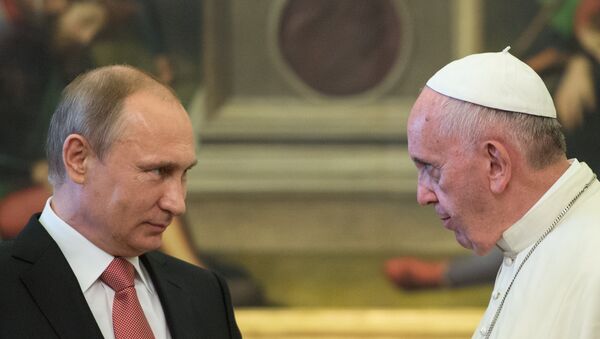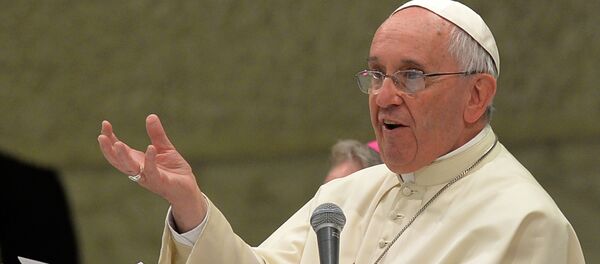According to Le Figaro, since the end of the Cold War, the Vatican has always been willing to hold a dialogue with Moscow.
"Russia has become one of the centers of a new polycentric world order, an empire in the process of establishment, which one should offer one's hand," political expert Canstance Colonna-Cesari said cited by the newspaper.
On February 12, Patriarch Kirill of Moscow and All Russia met Pope Francis at an airport in Havana, Cuba, where they signed a joint declaration. It was the first time that Catholic and Russian Orthodox spiritual leaders held face-to-face talks since Christianity split into western and eastern branches in 1054.
Restoring ties with the Vatican, representatives of the Russian Orthodox Church speak about strategic alliance with the Catholic Church aimed at defending "traditional Christian values." In their joint declaration, the leaders of the two churches urged to protect the persecution of Christians in the Middle East and called on the international community to take action in this direction.
According to the expert, the Vatican is interested in rapprochement with Russia for several reasons. First of all, one needs to come to terms with Russia as it is a strong energy and military power, which at the same time is restoring its status as a world power, getting more and more oriented to the east and adheres to Orthodox values.
On the other hand, there is a diplomatic reason behind the Vatican's desire to cooperate with Moscow: a possibility to enhance its involvement in Syria thanks to Vladimir Putin's good relationship with Damascus as well as Russia's ability to veto any decision of the UN Security Council with regard to the Syrian crisis.
"Relations with the Holy See are intertwined with the main goal of Putin's foreign policy: to return the status of a super power," the newspaper wrote.
"The situation in the Middle East gives Putin an opportunity to emphasize Russia's role in the international arena and present himself as a defender of eastern Christians in the spirit of Catherine the Great," it continued, citing political expert Yves Hamant.




